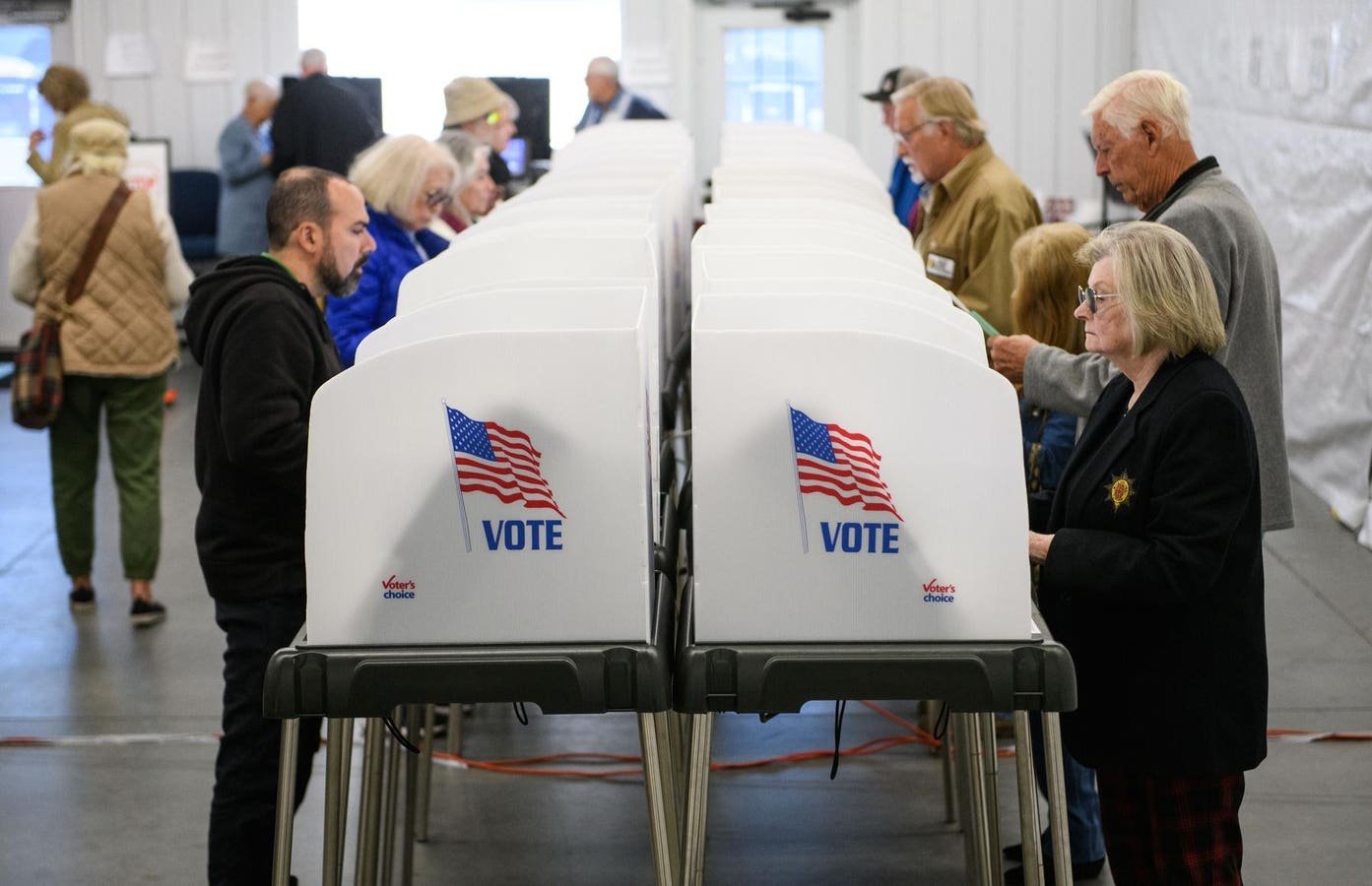To great fanfare in 2021, Democrats in the House of Representatives introduced H.R. 1 — designed to, among other things, expand voting rights and access. While the Constitution grants states the power to prescribe the time, place, and manner of elections for federal office, Congress can alter or preempt state regulations. The bill passed the House on a party-line vote and advanced to the Senate, where it was killed by a Republican-led filibuster. The legislation was a sprawling effort to federalize many electoral responsibilities traditionally reserved for the states. To take just one timely and pertinent example, , a provision of HR 1 would have banned partisan gerrymanders — requiring states to set up independent redistricting commissions.
Now Donald Trump has proposed some sweeping changes, writing on social media that he would “lead a movement to get rid of MAIL-IN BALLOTS.” Additionally, the president wants to target what he sees in his words as “Highly ‘Inaccurate,’ Very Expensive, and Seriously Controversial VOTING MACHINES.” He wants to institute universal voter ID. While the specifics of an executive order or a legislative push have not been announced, the president’s plan to ban voting by mail is unlikely to get significant public support for several reasons. Americans trust their local election officers, and they like convenience. They have generally applauded efforts to expand mail-in voting , although there are partisan differences. Americans are also aware of risks associated with this method of voting.
The polls on this issue take us back decades. In 1959, 88% told Gallup they thought people with disabilities or serious injuries should be able to vote by mail. Another question asked if businessmen away on business should be able to do so, and 79% said they should. Pollsters didn’t devote much attention to mail voting again until the mid-1990s, around the time Oregon considered and adopted a universal vote by mail. A Pew poll from 1996 found that 48% thought everyone should be allowed to vote by mail, while 47% disagreed.
Pollsters ramped up their work during COVID, and they asked questions about possibility of voter fraud if voting my mail was extended. An April 2020 Gallup poll found that 64% favored allowing all voters to vote by mail in the 2020 election. Forty-nine percent in a broader question said there would be more fraud if all voters cast their votes by mail, 29% about the same amount, and 20% less. A 2020 late summer Pew poll found that 25% believed voter fraud had been a major problem in terms of voting by mail , 27% a minor one, 27% not a problem at all, and 20% were not sure.
Pew has been asking self-identified voters about their confidence that their votes were counted accurately for many years. In 2020, when they asked people about in-person voting and separately, absentee or voting by mail, 57% were confident that mail or absentee votes were counted as intended. In their post 2024 election poll, 75% percent of self-identified voters, up from 57% in 2020, said the votes of those who voted absentee or by mail were counted as intended. In the poll, 90% felt confident that the votes of those who voted in person were counted as intended, and 92% gave that response about their own vote.
In this poll, like past ones, Republican voters’ belief that votes cast by mail had been counted as intended (72%), was almost as high as the Democratic voter response (78%). The answers of Democratic voters reflected a lower degree of confidence than they reported in Pew’s 2020 poll (95%), following their party’s presidential victory. Republican voters expressed more confidence in 2024 than in 2020, when only 19% gave that response. In their new 2025 poll, Republicans were much less enthusiastic (32%) than Democrats (83%) about allowing anyone to vote by mail. In the poll on a number of election policies, 58% strongly favored allowing any voter to vote by mail if they want to. The 58% is down from 70% who gave that response in April 2020 during the pandemic.
For the vast majority of Americans, voting is easy because we have made it so. At least as far as public opinion is concerned, voting by mail is here to stay. Americans have high trust in local election officials, and their support for voting absentee or by mail reflects that confidence. They like not only the convenience, but the opportunity to make the choice about how to vote themselves.. Those of us who would like to restore the civic ritual of people going to the polls on Election Day have lost this battle. And so will Trump.
